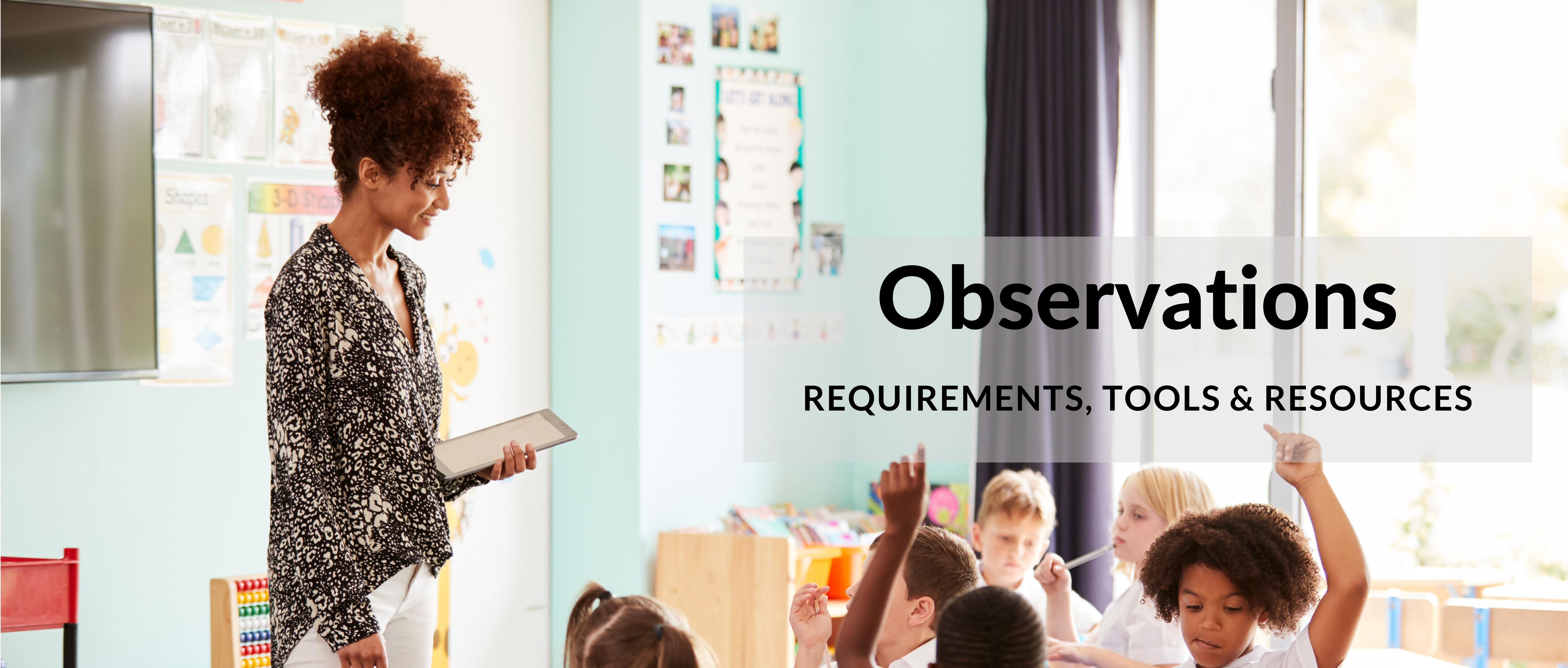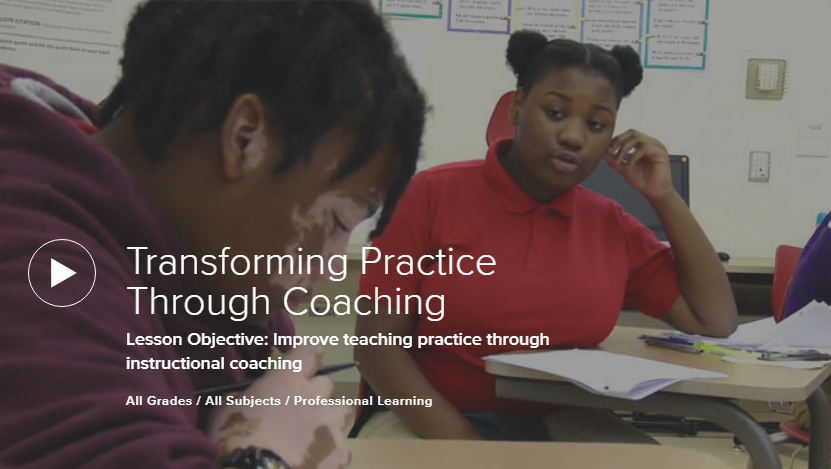Candidate Observation Requirements:
Candidates are required to have three (3) observations during the program year. Candidates can be observed during any focused cycle of inquiry.
- 2 – candidate facilitating instruction (in-person and/or video)
- 1 – candidate choice
IN-PERSON
Acceptable evidence:
OBSERVE
Acceptable evidence:
Completed Reflective Observation FormVIDEO
Acceptable evidence:
-Completed Watch Yourself / Watch Your Students Self-Reflection forms
-Feedback notes from reflective coach
CO-TEACH
Acceptable evidence:
Completed Reflective Observation FormTypes of Observations

The Coaching Cycle
For Candidate Observation
Coaches are responsible for scheduling planning (pre) and reflective (post) observation meetings, and submitting observation documentation in CTI Navigate.
Refresh your coaching skills by reviewing each phase of The Coaching Cycle for Candidate Observation and consider how the use of powerful questions might enhance the effectiveness of your coaching conversations.
Planning Conversation
When preparing a Planning Conversation, ask questions to…
- clarify goals
- identify what will be taught and how it will be taught
- clarify routines, procedures and materials management
- identify evidence of student understanding and learning
- determine what data will be most useful
Observation
When observing, consider these Classroom Data Gathering Strategies:
- Verbal flow
- Class traffic
- Selective verbatim
- Scripting
- Audio or video recording
Reflective Conversation
When planning for your Reflective Conversation, ask questions to…
- support reflection of the lesson
- support comparing the intent of the lesson with what occurred
- support connections between teaching and learning
- support reflection on how new learning will inform future practice
The Observation Cycle
Watch
- How the coach in the video uses a three- step process to complete an observation for his candidate.
- How he uses data to improve the complete observation process.
Consider
- Why the coach creates a script during his observation of the candidate.
- How the candidate and coach work together to determine next steps during the coaching cycle.
Benefits:
Peer observation supports teachers to:
- Engage in professional learning to improve teaching
- Enhance students’ learning through reflective practice
Demonstrate leadership by observing and supporting other teachers - Celebrate excellent teachers through the establishment of an esteemed college of peer observers
- Gather evidence of teaching quality to support career progression
- Gain feedback on significant teaching or course changes
- Enhance the culture of teaching and learning
- Form a community around teaching and learning
As an observer participating in peer observation, you may:
- See teaching practices that you can emulate
- Learn about teaching technologies
- Demonstrate leadership in teaching and learning
- Support your colleagues
- Take dedicated time to watch and reflect on teaching
- Gain students’ perspective
- Connect to colleagues within and beyond your discipline
http://www.uq.edu.au/teach/peer-obs/benefits.html




